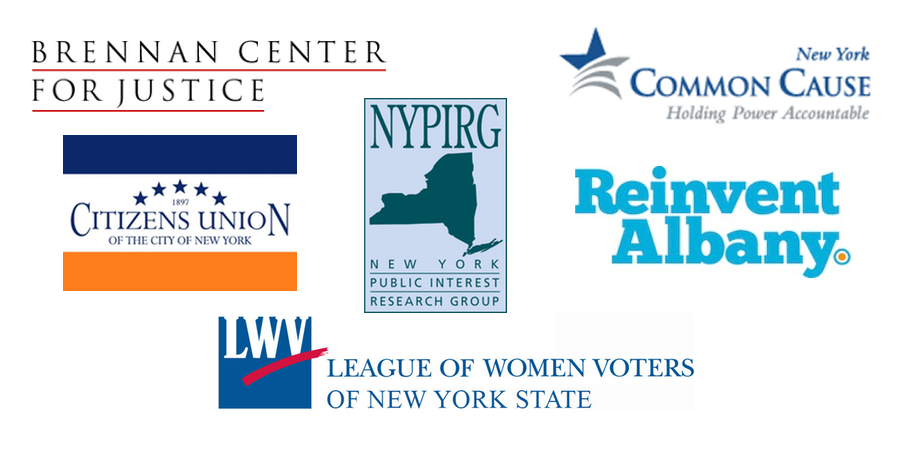Silver Resignation is “Historic Moment” For Assembly to Enact Major Reforms
Hours before Sheldon Silver resigns as Speaker of the State Assembly, six government reform groups sent a an email to all members of the NYS Assembly calling on them to enact four basic reforms that will make the Assembly more transparent, participatory and democratic. Below is the email from the groups. Download a copy here.

January 30, 2015
To: All members of NYS Assembly via Email
Re: Opportunity for Legislative Rules and Ethics Reform
Dear Assemblymember :
In the coming days, the Assembly faces a historic opportunity to create a more transparent, participatory and publicly deliberative process for making state policy. Backroom dealing and secrecy have become commonplace in the state’s capital, eroding public confidence and inviting cynicism. The best way to combat the public’s apathy is to demonstrate that there is a functioning legislative process that considers the voice of all members and the constituents they represent. The Assembly should therefore take concrete steps to overhaul the rules that keep it from functioning effectively as a legislative body, and make clear to New Yorkers that it is serious about enacting comprehensive and much-needed reforms to its ethics laws. These steps are important to turning around the public’s confidence in lawmaking and democracy.
Rules Reform
We urge Assemblymembers to seize this moment to demand four main changes to the way the Assembly operates: (1) increase the strength and efficiency of committees, so that they function fully and effectively; (2) provide greater opportunity for rank and file members to bring legislation with majority support to the floor, even over the objection of leadership; (3) institute more equitable allocation of resources between all members; and (4) increase transparency in the chamber.
More specifically, we strongly encourage you consider the following changes to the Assembly’s legislative procedures:
1. Increase the strength and efficiency of committees. In many state legislatures and in the United States Congress, committees function as the locus of legislative activity. In the New York State Assembly, the rules cede control over the committee process to the Speaker of the Assembly, which effectively strips committees of their chief legislative purpose. Committees can be strengthened by:
a. Giving each committee the power to hire and fire members of the committee staff, independently of leadership preferences;
b. Requiring a public reading and mark up process for bills before they can be passed through committee;
c. Requiring that all bills that pass out of committee include substantive reports (as they do in most state legislatures and Congress) that set forth the purpose of the bill, proposed changes to existing law, a section-by-section explanation of the bill, a cost-benefit-analysis, the bill’s procedural and voting history, and any individual members’ comments on the bill.
d. Clarifying the rule on petition for hearings, so that 1/3 of members can ensure a hearing on a bill unless a majority of members object;
2. The key to a functioning legislature is having active and engaged members who can participate fully in the legislative process and represent the interests of their constituents. The current Assembly rules do not give enough of a voice to individual Assemblymembers. The Assembly rules should be reformed to encourage greater participation by all legislators by:
a. providing the opportunity for a simple majority of members to bring any bill to the floor for consideration and a vote, regardless of leadership objections;
b. subjecting all amendments to bills under consideration by the full chamber to a vote;
c. requiring that all bills receive consideration by the full chamber within 30 days after being voted out of committee.
3. Foster equity and comity through the fair allocation of resources between the majority and minority conferences by ensuring that funding for central staff is proportionate to a conference’s size and tightening rules prohibiting the use of resources for political purposes. All members should receive equal funding for operating and staff budgets, regardless of party or seniority.
4. Increase transparency of legislative deliberations by webcasting all of the Assembly’s legislative proceedings, making access to information on the Legislative Retrieval Service free, using electronic and web-based communications to provide the public with adequate advance notice of meetings, hearings and meeting agendas, and following through with the creation of the State Government Public Affairs Channel (often referred to as “NYSPAN”). Committee meeting minutes, fiscal notes, voting records, debate transcripts, archived video and other products of the legislative process should all be available on the internet within a reasonable amount of time after their creation.
Ethics Reform
It should be clear that it is time for the State to seriously engage in a comprehensive reform of its ethics laws. Most importantly, this includes: overhauling legislative ethics oversight; full disclosure of outside business clients for all lawmakers; stricter oversight of lobbyists; and, comprehensive changes to the campaign finance system including the closing of the LLC loophole, lower contributions limits, strict controls over “personal use” of campaign contributions, and creation of a voluntary system of public financing of elections. While most of these will require the involvement of the Senate and the Governor, the Assembly on its own can unilaterally make important changes by, for example, enacting more stringent requirements around the disclosure of outside income.
Electing a new Speaker presents a tremendous opportunity to send a signal to New Yorkers about your commitment to making the Assembly a more representative, deliberative, accountable, transparent and efficient legislative body. We hope that you will urge all Speaker candidates to adopt the reform proposals listed in this letter and hold them accountable for implementing these reforms. We welcome the opportunity to discuss these proposals with you in greater detail.
Sincerely,
Lawrence Norden, Deputy Director Democracy Program, Brennan Center for Justice
Dick Dadey, Executive Director, Citizens Union
Susan Lerner, Executive Director, Common Cause New York
Sally Robinson, President, League of Women Voters of New York State
Blair Horner, Legislative Director, NYPIRG
John Kaehny, Executive Director, Reinvent Albany
